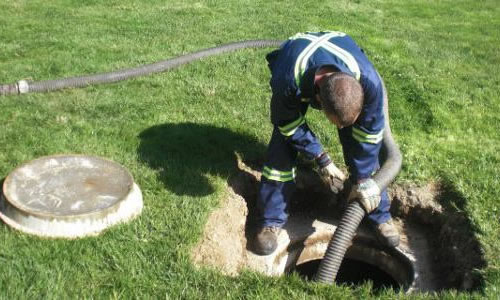Call This Wednesday to Get $25 OFF
Clean Solutions, Dirty Jobs – Done Right. Reliable. Responsive. Remarkable.
Call This Wednesday to Get $25 OFF
Clean Solutions, Dirty Jobs – Done Right. Reliable. Responsive. Remarkable.
If you are among twenty percent of homeowners in the United States whose home is not connected to a centralized sewer system, then you likely have a septic system installed in your yard to treat your household’s waste and wastewater. While septic systems are designed to last for up to thirty years, irresponsible usage can lead to septic tank problems that will require you to get expensive repairs or even a premature replacement. At Septic Connection, we do our best to educate our community on how to make the most of their septic systems. We offer septic services, products, and information to this end. Please feel free to call Septic Connection if you have any questions or concerns. Our friendly staff are always happy to help.

Septic systems are deceptively simple systems, but they are just as sensitive to unsuitable usage. They use natural process and scientific technology to treat wastewater from the household plumbing. The typical septic system includes a septic tank and a drain field. Waste and wastewater travels to the septic tank through inlet pipes. The waste is divided into three layers in the septic tank: solid waste, liquid effluent, and scum. While the liquids are ejected into the drain field where they are treated by percolating through the soil, the solids and scum are broken down into sludge by bacteria and microbes in the septic tank. Eventually, the tank must be cleaned to remove the sludge.
Septic tanks have a limited capacity and are measured in gallons. Most household septic tanks are between 1,000 and 2,000 gallons. Therefore, it is important to be mindful of your water usage. Running the dishwasher, washing machine, and shower at the same time, for example, can place undue burden on the system. Consider spreading out household chores throughout the day and investing in water-efficient appliances and toilets.
Just as you would with a conventional sewer system, be careful with what you toss into the drains and toilets. Toilets are NOT trash bins. The only things that you should flush down the toilet are toilet paper and human excrement. Everything else should be tossed into a trash can. Food scraps and grease should also be disposed of properly instead of tossing them into the kitchen sink. Toss food scraps into the trash or compost bin. Keep a container for grease and dispose of it once it is filled.
The septic system is an onsite waste treatment facility, and it is incredibly reliable. However, the system is only as effective…
Imagine flushing your toilet and then suddenly realizing that your backyard has turned into a swampy mess. This unpleasant experience is…
Soil testing is a critical step in various construction and environmental projects. It provides essential information about the ground conditions, which…
Grease traps are remarkable tools that help keep your establishment clean and free from bad odors. Septic Connection has a…
If you have just moved into a new home or property that relies on a septic system for waste and wastewater…
Finally, be mindful of where your drain field is located. The drain field area is sensitive to pressure. In fact, compacted soil in a drain field can give you big problems. So, avoid parking on or driving over the drain field area. Refrain from planting large trees or installing structures on or around the drain field area.
No matter how careful you are with your septic system, the elements and other intruders such as invasive tree roots can damage your septic tank and pipes. Scheduling periodic inspections can save you from headache later on. Don’t forget to schedule your routine septic pumping, either. Septic Connection recommends that households have their septic tank pumped once every two or three years. Call Septic Connection to schedule your appointment today.
It started like many household plumbing problems do: slow drains, gurgling sounds, and water backing up where it shouldn’t. The assumption was simple—a stubborn clog somewhere in the pipes. A…
Read moreWhen septic problems start, many homeowners look for quick and inexpensive solutions. Online videos, store-bought additives, and advice from well-meaning neighbors can make do-it-yourself septic fixes seem appealing. Unfortunately, septic…
Read more